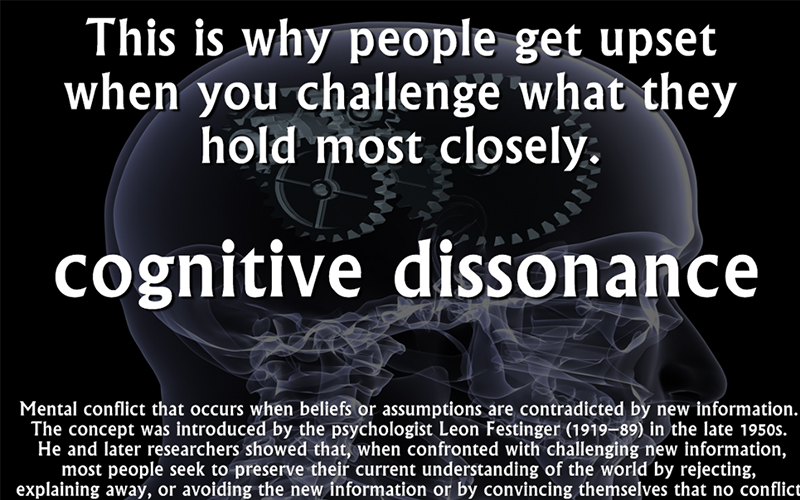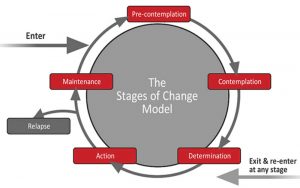Behavior Change -Truth and Understanding…
Understanding behavior change
Understanding the process of human behavior change is a difficult thing for most of us. We are conditioned by cultural messages of “pull yourself up by your boot straps” and “just do it”.
Our heroes are often people who overcame great odds through shear will and determination. Motivational speakers rip us a new one and tell us to get up earlier and never give in. Self-help gurus tell us that self-talk and surrounding ourselves with the “right people” will make the change stick.
They tell us to bring our game to a new level. Of course, there is some truth to all these things. However, in reality, it is a complex process that varies from person to person. It is especially ironic that behavior change is so misunderstood given the fact we know and understand quite a bit about human behavioral change.
The issue of behavior change is even more pronounced given the neuro-biology of addiction. Addiction adds fuel to the existing ambivalence around changing substance use behavior. The individual is impaired or, “not thinking straight” and this makes the change even more difficult.
With the best of intentions we will confront people in addiction and offer advice. We demand they change. We push remedies and solutions. We do this because we want to help. It is very natural and it is known as the righting reflex. However, in the overwhelming majority of cases our efforts to influence change produce the exact opposite of the stated intent.
Instead of driving the person toward recovery, these efforts drive the person deeper into the behavior. When you argue with someone about the seriousness of their substance misuse issue they argue back. As they argue back and debate their position it reinforces the “rightness” of their position. The more we say something out loud the more we believe it.
UNDERSTANDING THE RIGHTING REFLEX:
In terms of behavior change the righting reflex is the “common human tendency to try and make things right”. You are out with your girlfriend and she is talking about her toxic relationship with her mother. She is going on and on about “every phone call turning bad”.
You can tell she is upset. You care for your girlfriend. So you offer some unsolicited (obvious) advice:
“Why don’t you just hang up on her the next time she starts in on you”.
Your girlfriend instantly looks at you like you are a monster from the Texas Chainsaw Massacre series.
She tells you “I can NOT BELIEVE HOW INSENSITIVE YOU ARE”
….and then she immediately rushes home and calls her mom to report your behavior, pounds a carton of ice-cream, and spends the night bashing you with her mother joining in along the way.
Although the above situation may be humorous, the scenario with addiction is dead serious.
Remember addiction is a brain disease that makes processing, analyzing, and integrating information even more difficult. We are pre-disposed to defend our addiction and justify our actions. We are primed for an argument.
We will debate you to death if it means we can hang onto our substance use. When someone approaches us with instructions, unsolicited advice, or confrontational statements we will enter into fight or flight and it is unlikely we assimilate anything that is said.
Note: This does not mean you ignore bad behavior. This means you convey your boundaries and plan your intervention in a strategic way. You avoid the arguments and stick to your expectations and the associated bottom lines.
Mean what you say, say what you mean,
but don’t say it mean.
Theory of Change: People change for a wide variety of factors. Many times, I would argue most times, these factors are not the obvious factors. For example, we say to ourselves “you would think Rich would quit drinking given the fact he is going to lose his job”.
What we don’t know is the value Rich places on his job and the impact this may have on him. Unfortunately, the same could be said for the threat of lost marriages or losing custody of children. Even the threat of jail leaves many unphased.
However, I believe in the human spirit. I believe all people, no matter how low they have gone, have desires and values they hold dear. They may not be able to access this easily as it is buried under layers of guilt, remorse, shame, and learned helplessness. But it is there.
The good is there and their personal values are there. Change will arise when the tension between your stated values and your current behaviors becomes unbearable.
If I value my family or believe my family is important and I become aware that using is detrimental to my family and I continue to use; the internal tension can provoke change. IF I AM ABLE TO GET IN TOUCH WITH THAT TENSION.
Many times, we will run from that tension and use to avoid the tension or numb the emotional pain. This is where interventions, support groups and professional support can help the person access his or her true nature.
The internal tension between stated values and behavioral reality is known as COGNITIVE DISSONANCE.
We will also “argue with ourselves” regarding these beliefs or values and the supporting information. We can talk ourselves out of the dissonance. We can question our own reality. This is very pronounced where addiction is concerned.
We believe that the essence of coaching and counseling is facilitating a trusting relationship with the person in need. If we have a relationship we can process events, explore behaviors, and highlight the existing tensions.
If I break out into a speech along the lines of “change or die” I am highly unlikely to ever see the person again. He or she will isolate and continue to talk themselves out of the need for change. We believe it is much better outcome to keep a connection. We also believe that the process of change is accelerated in the context of a therapeutic relationship.
Obviously, it is difficult for family members or friends to provide that therapeutic relationship. Finding competent supports for the individual in need is essential to the process. However, family members and friends can develop a realistic view of what works in behavior change. This awareness may save you a bunch of time, energy and emotion. Be strategic about supporting behavior change.
Deliver Boundaries and Information In a Matter of Fact/Calm Manner: Perhaps the best thing family members can do is to provide clear and consistent information and boundaries around the substance use. Try to deliver the information and expectations in a rational non-emotional way.
There are generally accepted “stages of change”. Many times, we will act as if the person is in “preparation” or “action” when they are actually in pre-contemplation or contemplation. If we move faster than the person in need we will sabotage the process.
None of this is easy and everyone makes mistakes. It’s an emotionally laden experience and many times we will not think before we speak. Just remember your main goal is to move the process along. Sometimes this requires a calm approach when you feel compelled toward a more confrontation process.
Come see us soon at FAVOR Greenville family groups or check out my live stream…




